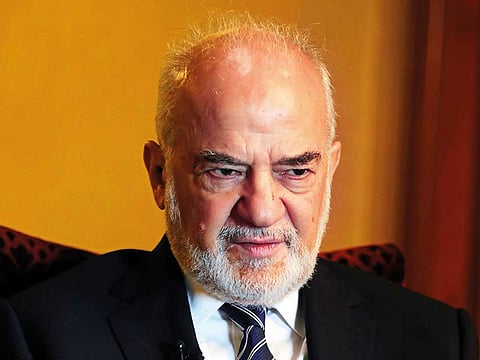Turkey, Iraq warn over Kurdish referendum
Turkish foreign ministry says insisting on the plebiscite will come at a cost

Cairo: Ankara welcomed an Iraqi parliament move to reject a referendum on Kurdish independence and warned the semi-autonomous Kurdish region that insisting on the plebiscite would have a cost, the Turkish Foreign Ministry said on Thursday.
The parliament in Baghdad authorised the prime minister on Tuesday to “take all measures” to preserve Iraq’s unity in response to the move to hold a referendum on September 25.
Kurdish leader Massoud Barzani subsequently vowed to press ahead with the vote, calling it “a natural right”.
“We find the (Iraqi Kurdish) leadership’s insistent stance regarding the referendum and its increasingly emotional statements worrying,” Turkey’s foreign ministry said in a written statement.
“It should be noted that this insistence will definitely have a cost,” it added.
“We call on them to act with good sense and abandon this erroneous approach immediately.” Turkey, which has the region’s largest Kurdish population, fears a ‘Yes’ vote could fuel separatism in its southeast where Kurdish militants have waged an insurgency for three decades in which more than 40,000 people have been killed.
Last month, the head of Turkey’s nationalist opposition said the referendum should be viewed by Ankara as a reason for war “if necessary”. However, the Turkish prime minister dismissed his warning.
Ankara has built solid ties with Barzani’s administration, founded on strong economic and energy links as well as Ankara and Erbil’s shared suspicions of other Kurdish groups and Iraq’s central government.
Iran and Syria, also Iraq’s other neighbours, oppose the vote too, fearing it could fan separatism among their own Kurdish populations.
Western powers worry the plebiscite — including the oil-rich city of Kirkuk — could ignite conflict with the central government in Baghdad and divert attention from the war against Daesh terrorists.
Iraqi Kurdish leaders must be prepared to face the consequences if they unilaterally declare independence and find implementation more difficult than they expected, Iraqi Foreign Minister Ibrahim Al Ja’afari said on Wednesday.
Al Ja’afari was in Cairo for an Arab League summit where the closing statement included a resolution calling a Kurdish independence referendum this month unconstitutional, mirroring the stance of Iraq’s central government and national parliament.
Al Ja’afari told Reuters in an interview Kurdish leaders should think carefully before going ahead with any independence move.
“Those who make such a declaration should bear the responsibility for it. It is easy to declare whatever you want but it is not that easy to actualise it,” he said in his Cairo hotel room.
“We are depending on dialogue and also Arab, and non-Arab advocacy. As we saw yesterday, the Arab diplomatic mobilisation was attained by Arab foreign ministers,” he said.
The Kurdish area of northern Iraq has enjoyed broad autonomy since the first Gulf War in 1991. Since the 2003 US-led invasion and the overthrow of Saddam Hussein, it has been largely stable while the rest of Iraq has suffered insurgency.
Kurds are set to hold the referendum on September 25 but Baghdad opposes it, with lawmakers voting to reject it. Iraq’s neighbours — Turkey, Iran and Syria — also oppose the referendum, fearing it could fan separatism among their own ethnic Kurdish populations.
Western powers are concerned a plebiscite in Iraq’s semi-autonomous Kurdish region — including the oil-rich city of Kirkuk — could divert attention from the war against Daesh terrorists.
Kurds have sought an independent state since at least the end of First World War, when colonial powers divided up the Middle East after the collapse of the multi-ethnic Ottoman Empire.
Iraq is in the final throws of a US-backed campaign to oust the Sunni militant groups which seized vast swathes of the country back in 2014. Iraqi forces took back its second largest city, Mosul in July, and Tal Afar last month.
Al Ja’afari said the international community must offer financial and other support to Iraq for the rebuilding of Mosul and other cities retaken from Daesh.
“It is well known that nations who have emerged from war and destruction suffer great losses especially if the opposing party is implementing a scorched earth policy. (They) never surrendered land except after destroying it,” he said.
“Homes, institutions, hospitals mosques, markets and worship places, all were destroyed. The money needed is not little, a great sum is required.”



